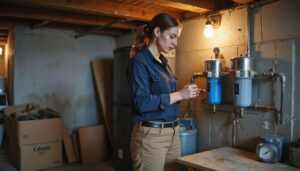The Benefits of Soaking in a Hot Tub for Wellness and Relaxation
Many people struggle with stress, sore muscles, or trouble sleeping after a long day. Studies show that soaking in hot water can provide real Hot Tub Health Benefits like pain relief and better sleep.
This article explains how a hot tub can boost your wellness through relaxation, improved circulation, and mental health support. Discover simple ways to make the most of your next soak.






